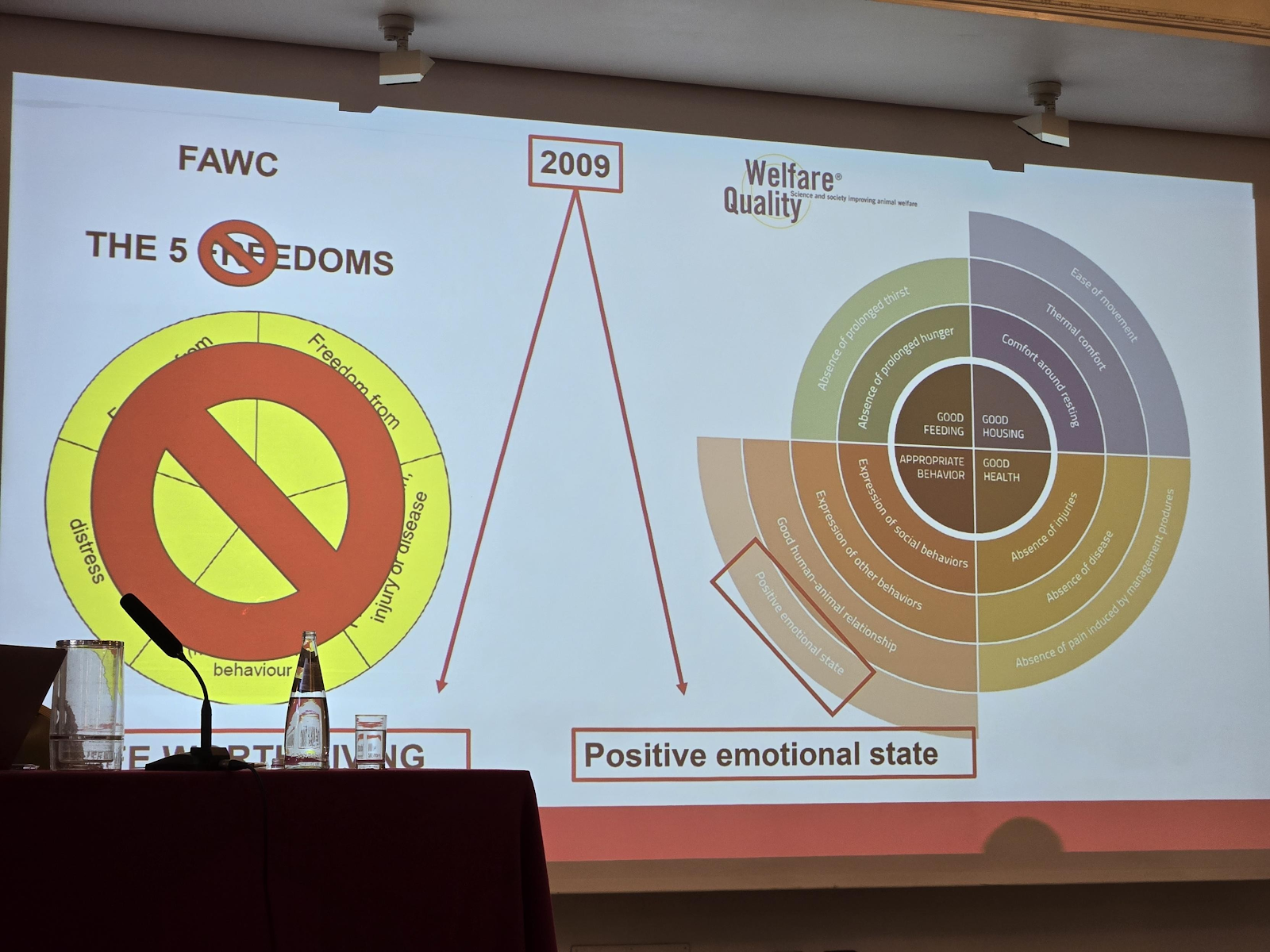WAFL conference 2024
The International Conference on Welfare Assessment at Farm Level
(WAFL) is held every 3 years. The focus of the conference is to bring researchers
and other stakeholders interested in practical welfare assessment on farms and
in groups. The 8th edition of the conference back in 2021 only took
place online, due to the impact of the pandemic. As there is no existing
organisation behind the conference organisation, it always depends on volunteers
to come forth to host the next meeting. It was unfortunate that there was no
new volunteer since 2021. But thanks to the good will and passion of the
previous organisers, Dr Keelin O’Driscoll, Dr Laura Boyle and Dr Amy Quinn from
Teagasc, the 9th WAFL conference took place in Florence, Italy on 30-31
August 2024 with the help of the European Federation of Animal Science (EAAP).
https://wafl2024.eaap.org/
This year the main theme is “The Future of Farm Animal Welfare Science”, with sub themes of “New frontiers in the assessment of animal welfare on-farm,” “Role of sociology in improving farm animal welfare,” “Welfare of farm animals at end of life,” “New welfare indicators with a focus on the positive,” “The future of animal welfare: policy and science,” “Cognition and the welfare of farm animals,” and “Suppress, substitute and soothe suffering – application of the 3S’s to improve farm animal welfare”. The conference opened with the plenary speaker Dr Antoni Dalmau on revisiting the Welfare Quality Protocol and how it should evolve as the concept of animal welfare move from the Five Freedom to the Five Domains. Also a very interesting talk from this session is on how to optimally combine the welfare assessment scores/indicators considering the risk and hazards of animal welfare. This can then give us the most pivotal welfare indicators that can represent the maximum number of welfare consequences to be assessed on farms.
Dr Emma Roe gave a very different but important plenary on reconsidering what social science and humanities research can do to improve farm animal welfare. We need to start thinking about the animals’ perspectives and use a participatory and collaborative approach to research. She also gave many great examples of how to engage the public on animal welfare issues in creative and artistic ways.
I had the honour to chair the session of welfare at end of life session, which is a critical animal welfare subject that is sometimes overlooked or avoided. We invited Dr Mette Herskin who talked about cull sows and the various welfare issues of transporting them as their health and physical condition are usually not optimal at this stage, therefore requires even more consideration of ventilation, water provision and duration of transport.
The second day of WAFL was opened by Dr Bob Fischer’s engaging plenary talk on how animal welfare is practically considered using quantifiable calculations in US legislation and policy and how policy researchers and animal welfare scientists can work together to improve this quantification.
Among others, there are so many great talks that cover public/farmer perception on on-farm technologies, how vet students can reconsider their predominantly health-centred view on animal welfare after an engaging coursework on animal welfare, unplanned culling of group-housed sows with respect to housing the management, development of a one-step electrocution on-farm euthanasia methods for pigs, a systematic review of the reliability and validity of the Qualitative Behaviour Assessment, positive social relationships in group-housed sows, current state of animal welfare assessment activities across the EU, relationship between littermates and tail biting behaviour, acoustic analysis to identify non-fatal piglet crushing events, welfare issues in rabbit farming, establishing validation guidelines for sensors used for the automatic assessment of animal welfare and very practical discussion on how many animals to assess for a reliable decision on welfare.
WAFL is a great place to learn about the latest development in on-farm welfare assessment and also to reflect on our existing methods and concepts to improve our discipline. I’m looking forward to the next WAFL, whether in 2 or 3 years, and also to the possibility of soon having some kind of organisation that can support WAFL to be a sustainable initiative.






 (from Dr Eimear Murphy's slides)
(from Dr Eimear Murphy's slides)